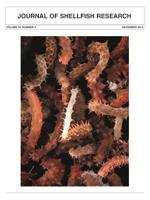Malathion is an organophosphate pesticide that is sprayed agriculturally and for public health threats such as malaria and West Nile virus. It can contaminate surface waters, where it can interact with aquatic organisms. In addition to combating exposure to pesticides, aquatic organisms must defend against biotic stressors, which could intensify effects imparted by chemicals. We investigated effects that exposure to an environmentally relevant malathion concentration (0.001 µg/L) and predation cues imparted on immune system function and reproductive output in individuals in the pond snail species Lymnaea stagnalis (Linnaeus, 1758) (Gastropoda: Pulmonata). Snails were grown in four exposure treatment groups: nonmalathion— nonpredation, nonmalathion—predation, malathion—nonpredation, and malathion—predation. Malathion exposure caused a decrease in hemocyte numbers, which was unaffected by predation cue exposure, and a decrease in egg numbers, which was amplified by predation cue exposure. These results demonstrate that pesticides can affect fitness-related traits in a manner that can be accentuated by natural stressors.
How to translate text using browser tools
1 December 2013
Pesticide and Predation Exposure Effects on Pond Snail ImmuneSystem Function and Reproductive Output
J. K. Latanville,
Jon R. Stone
ACCESS THE FULL ARTICLE

Journal of Shellfish Research
Vol. 32 • No. 3
December 2013
Vol. 32 • No. 3
December 2013
ecotoxicology
Lymnaea
malathion
necromones
nontarget organisms
pond snail
risk quotient




